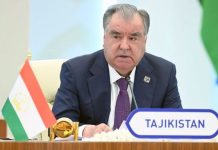UNITED NATIONS, May 07 (APP):Pakistan has called for steps to prevent the weaponization of outer space, saying such a course would avert a grave danger to international peace and security.
“The threats to security in and from outer space have escalated sharply in recent years. This is evident from the placement of weapons in space, and its increasing characterization as the next war-fighting frontier in the military policies and doctrines of major powers,” Ambassador Munir Akram told the UN General Assembly on Monday.
The 193-member Assembly was debating Russia’s veto in the Security Council last month which blocked a draft resolution aimed at preventing a new extraterrestrial arms race.
Due to the negative Russian vote, the 15-member Council failed to adopt last month’s text, which received 13 votes in favour, with China abstaining. The draft resolution was introduced by United States and Japan and co-sponsored by over 60 nations.
In his remarks, Ambassador Akram said that the US-Japan draft resolution rightly recognized that the prevention of an arms race in Outer Space would avert a grave danger for international peace and security; underscored the importance of the Outer Space Treaty; and reiterated that the Geneva-based Conference on Disarmament as the sole multilateral disarmament negotiating forum.
Pakistan, he said, has always maintained a principled position that resolutions on global disarmament issues should be deliberated and concluded in an inclusive and transparent manner within the appropriate forums — the Conference on Disarmament (CD), the UN Disarmament Commission and the First Committee of the UN General Assembly, which deals with disarmament and international security matters.
The Pakistani envoy regretted that there has been no progress on a Treaty to Prevent an Arms Race in Outer Space for over four decades.
“Initially,” he said, “some dismissed the possibility of an arms race in outer space. Then, they argued that it was too late to prevent its militarization and called for focusing on non-weaponization measures. Now, they want to concentrate on behavior rather than capabilities, ignoring the inherent risks of legitimizing the weaponization of Outer Space.”
Pakistan, Ambassador Akram said, has been advocating a comprehensive approach with a dual focus on both capabilities and behaviour.
“We have consistently advocated urgent negotiations on a legally binding instrument on PAROS (Preventing Arms Race in Outer Space). Concurrently, we have also actively contributed to non-legally binding measures such as Transparency and Confidence-Building Measures (TCBMs).
However, he added, the evident gaps in the international legal regime cannot be filled by TCBMs or other non-legally binding norms.
Regretting that a few states continue to block the start of such negotiations in the Committee on Disarmament (CD) on a legally binding instrument that prohibits the placement of weapons in outer space and outlaws the threat or use of force against outer space objects, the Pakistani envoy said that they have failed to explain how such negotiations would undermine their security interests. “They have also failed to justify why definitional and verification issues cannot be taken up during negotiations – an approach that they advocate for another item in the CD.”
Ambassador Akram therefore hoped that this issue of weaponization of Outer Space, which has been raised in the Security Council, will be transmitted to the C.D. for further consideration within the context of negotiations on a Treaty to prevent an arms race in Outer Space.
Earlier, Russian Ambassador Vassily Nebenzia explained why his delegation voted against the US-Japan draft resolution.
He stated that despite its “beautiful sounding title”, the text failed to address its declared goal because that objective was already covered by existing international agreements, and voiced concern that the resolution could have had “far-reaching consequences” for disarmament processes.
“During the negotiations on this draft, we attempted in vain to get an answer from the authors on why they were trying to use the Security Council to reaffirm already existing international obligations in the area of outer space exploration,” he said.
He referenced the 1967 Outer Space Treaty, which unequivocally prohibits placing weapons of mass destruction in outer space and suggested that discussions on this topic should take place in specialized forums that include all General Assembly members.
Ambassador Nebenzia criticized the draft for attempting to introduce new restrictions through the Security Council that were not previously established in any international instruments, including the 1967 treaty, raising “serious doubts from a legal point of view” about these new restrictions.
“Imposing such obligations without preliminary, expert, legal and technical discussions is inadmissible,” he said.
On his part, Japanese Ambassador Kazuyuki Yamazaki urged delegates to consider the catastrophic consequences if a nuclear weapon were detonated in outer space, resulting in the destruction of satellites and critical space infrastructure with irreversible impacts on people’s lives worldwide.
“The draft Security Council resolution on weapons of mass destruction in outer space, co-drafted by the US and Japan, was intended to avoid such a nuclear catastrophe for humankind,” he said.
He highlighted the broad support for the draft, with 13 votes in favour and 65 co-sponsors.
“Regrettably, one permanent member decided to silence the critical message we wanted to send to the present and future people of the world: outer space must remain a domain free of weapons of mass destruction,” he lamented.
He said preventing nuclear weapons and other weapons of mass destruction in outer space “must remain our priority”.
“Outer space must never be an arena for a nuclear arms race,” he said.
US Deputy Ambassador Robert Wood said the debate surrounding Russia’s veto of the draft resolution presents a critical opportunity to promote accountability and transparency among all permanent Council members.
He highlighted that the draft resolution aimed to affirm the obligations of all States parties under the 1967 Outer Space Treaty, particularly over the prohibition of placing nuclear weapons or other weapons of mass destruction in outer space.
He said it also urged UN Member States not to develop nuclear weapons specifically designed for deployment in orbit, which would mitigate the risk of a nuclear incident in space and preserve vital satellites essential for communication, security and sustainable development.
“It should not be at all controversial or difficult for the Security Council to affirm the clear obligations of parties under the Outer Space Treaty nor should it be difficult to ask that States work together towards our shared interests,” he said.
Ambassador Wood noted that the US and Japan, as the penholders, were deliberate, transparent, inclusive and flexible in their approach to the resolution, with the text evolving based on negotiations.
Regarding Russia’s new proposed draft resolution on the topic, he criticized it as a “diplomatic façade” concealing its “true intentions”.
The reality is that Russia currently possesses several conventional anti-satellite weapons in orbit, he said, citing a 2019 weapon test and ongoing threats against satellites.
“Russia’s actions cast significant doubt as to whether it will uphold its existing legal obligations under the Outer Space Treaty and raise concern about what this means for international peace and security,” he added.
Speaking on the issue, Chinese Ambassador Fu Cong emphasized that outer space is the “global commons and embodies the shared aspirations of all humanity”.
“The world today is not at peace. The risk of outer space weaponization is on the rise and the right of developing countries to access space science and technology is being restricted,” he said.
He said the international community should take measures that benefit all countries.
These include preserving the peaceful character of outer space, urgently enhancing international space governance frameworks and fostering increased cooperation and dialogue.
“The draft resolution on outer space security previously proposed by the US and Japan is neither comprehensive nor balanced, which China is not in a position to support,” the Chinese envoy said, adding that a new resolution proposed by Russia at the Security Council is more balanced and comprehensive.
“China supports that [Russian] draft resolution and looks forward to its early agreement among Council members to jointly safeguard mutual trust and cooperation among all parties on the issue of outer space,” he added.

















